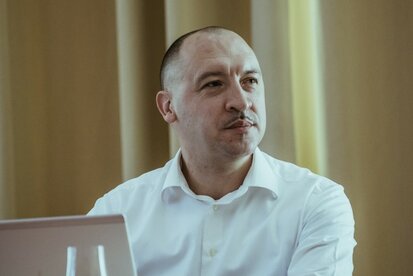Research infrastructures play a crucial role in advancing social sciences by promoting knowledge sharing, fostering innovation, and training the next generation of researchers. Key infrastructures such as ESS (European Social Survey) and CESSDA (Consortium of European Social Science Data Archives) have proven instrumental in this regard. The participation of several Western Balkan economies in these European Research Infrastructure Consortia (ERIC) has had a positive impact on local innovation systems, enabling brain circulation and facilitating access to first-class international research resources.
Selected as an ambassador for research infrastructures, Nenad Čelarević, Regional Business Development Manager at Helvetas, advocates for the benefits of engaging with leading European research infrastructures under ESFRI and ERIC frameworks. His work highlights how involvement in these networks helps the Western Balkans enhance their research capacities and regional cooperation.
POLICY ANSWERS: On which level are the most pressing research infrastructure needs in your perspective: large scale international RIs or laboratory equipment or anything in between? Why?
In my view, the most pressing needs in the Western Balkans, particularly in the social sciences and humanities, lie in the middle tier of research infrastructures—those that enable networked collaboration, data sharing, and digital access. We’re not talking about billion-euro facilities like particle accelerators, but rather digital platforms, interoperable archives, and regional data repositories. We also need investment in capacity building for SSH researchers so that they can catch up with their peers in ERA.
Why? Because SSH research in this region is deeply tied to understanding complex social dynamics—identity, memory, migration, democratization, values, attitudes, etc. These require access to historical records, oral histories, survey data, and cultural artifacts, much of which is scattered, analog, or inaccessible. Investing in mid-level RIs can unlock enormous potential for regional cooperation and reconciliation, and also position the region as a contributor to European research area. Research infrastructure also have high potential for unlocking the economic development and work with private sector, always easy example is about cultural heritage and tourism development.
POLICY ANSWERS: Where do you see the opportunities, the “low hanging fruits”, for research infrastructure development in the region?
There are several promising, relatively low-cost opportunities. First, digitization of cultural heritage—archives, libraries, oral histories—is a major one. Many institutions in the region have rich collections that are underutilized simply because they’re not digitized or networked.
Second, regional data platforms. Imagine a shared repository of public opinion surveys, migration data, or post-conflict reconciliation initiatives. These would not only support academic research but also inform policy and diplomacy. Here we need to be specific and ask for highest methodological standards in data collection which is stipulated by European Social Survey ERIC.
Third, capacity building. Training researchers in digital methods, data management, and open science practices is a quick win. It empowers local scholars and helps bridge the gap between the Western Balkans and EU research ecosystems.
POLICY ANSWERS: What are the current challenges for RI development in the Western Balkans specifically in your scientific field?
There are several interlinked challenges. One is fragmentation—institutions and individual researchers often work in isolation, with little coordination across borders or even within countries, or within the institution. This limits the scalability and sustainability of RIs. There is also a bit of zero-sum game approach, in which there is no developed approach as win-win, so that scientists/scholars can work together.
Another is underfunding. SSH is often deprioritized in national research agendas, and infrastructure investments tend to favor STEM fields. This leaves social scientists without the tools they need to contribute meaningfully to European debates and data sets.
We also face a brain drain problem. Talented researchers leave for better opportunities abroad, weakening institutional memory and continuity. And finally, limited integration into European RI networks like DARIAH ,CESSDA, European Social Survey means we’re missing out on collaboration, visibility, and funding. Joining the RI from the Western Balkans it is a two way street, there should be incentive for RIs also to develop and get new countries on board, since there is investment needed to be done from the side of RI to get new members. For new country to join some of the RI there should be a developed roadmap with capacity building measures so that scientist can get prepared.
POLICY ANSWERS: What is your realistic scenario for regional cooperation in the area of research infrastructures?
A realistic scenario is one of incremental but meaningful progress. I see Western Balkan institutions increasingly joining European RI consortia, supported by EU programs like Horizon Europe and COST. We’ll likely see the emergence of regional centers of excellence focused on themes like transitional justice, migration, and cultural heritage. Or regional hub on EU integration.
There will be more joint training programs, mobility schemes, and collaborative projects, which will help build trust and shared expertise. Importantly, I believe we’ll see science diplomacy playing a bigger role—where research becomes a platform for dialogue, peacebuilding, and regional integration and cooperation.
It won’t be without challenges, but the momentum is there. The key is to align national priorities with European strategies, and to recognize that SSH is not just about studying society—it’s about shaping it and when it comes to Western Balkans- transforming the societies to get closer to the EU.

